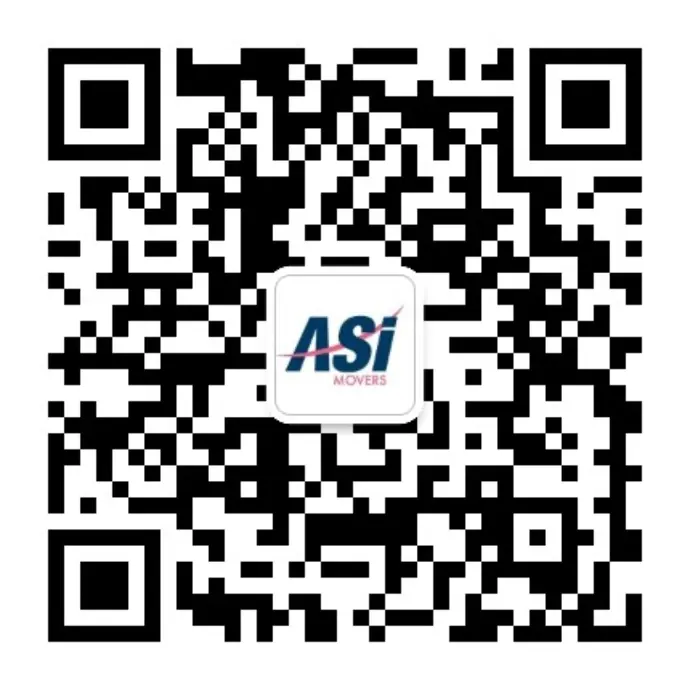Moving to a new country is like strapping into a rollercoaster of emotions, filled with highs, lows, and everything in between. When it comes to expatriation, the keyword is cross-cultural adaptation: a phenomenon that reshapes worldviews and tests our resilience.
In 1955, Sverre Lysgaard studied these ups and downs faced by those who immerse themselves in a new host culture. His observations led to the U-Curve model of cross-cultural adaptation, which describes four distinct phases: Honeymoon, Culture Shock, Recovery (or adjustment), and Mastery.
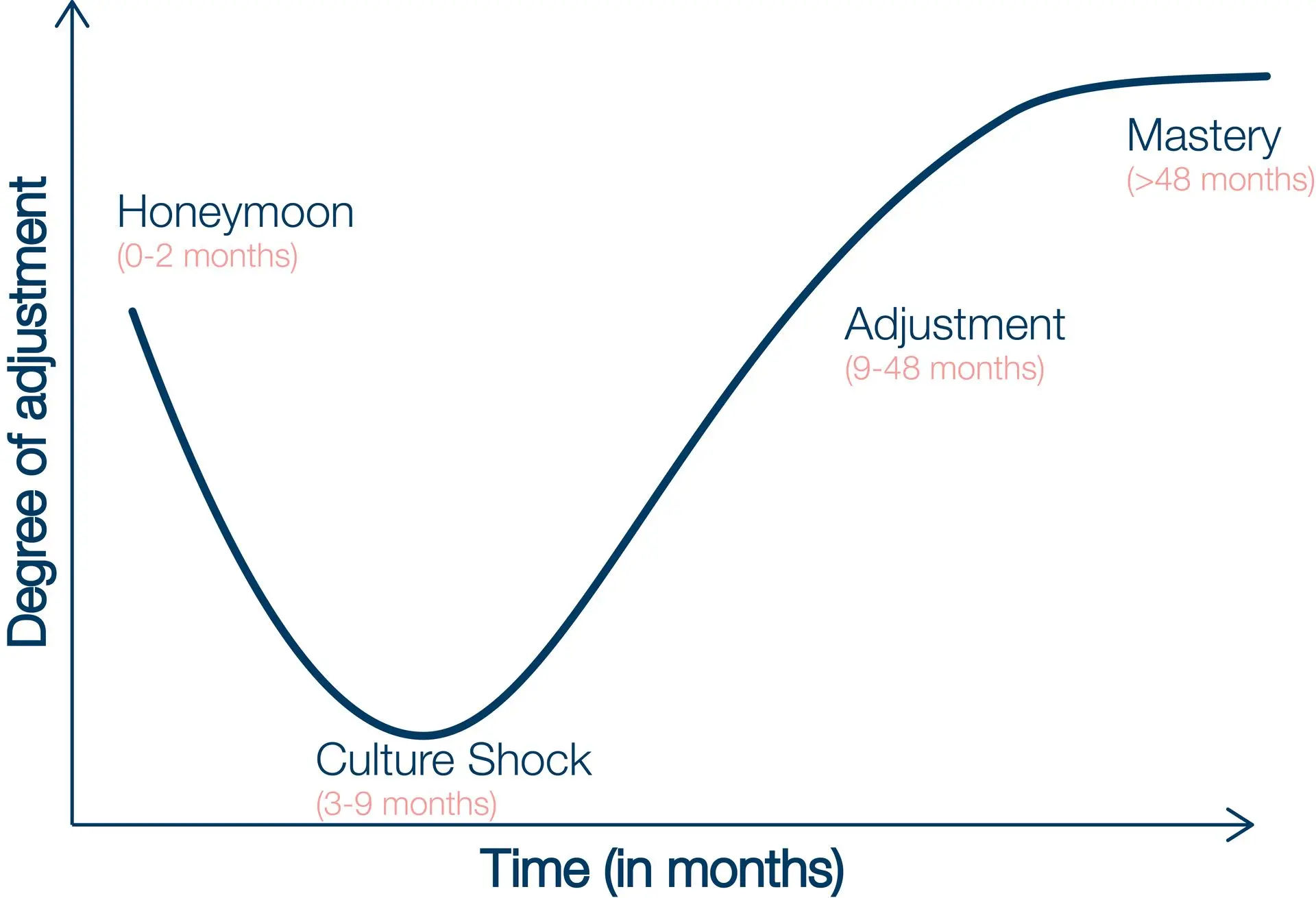
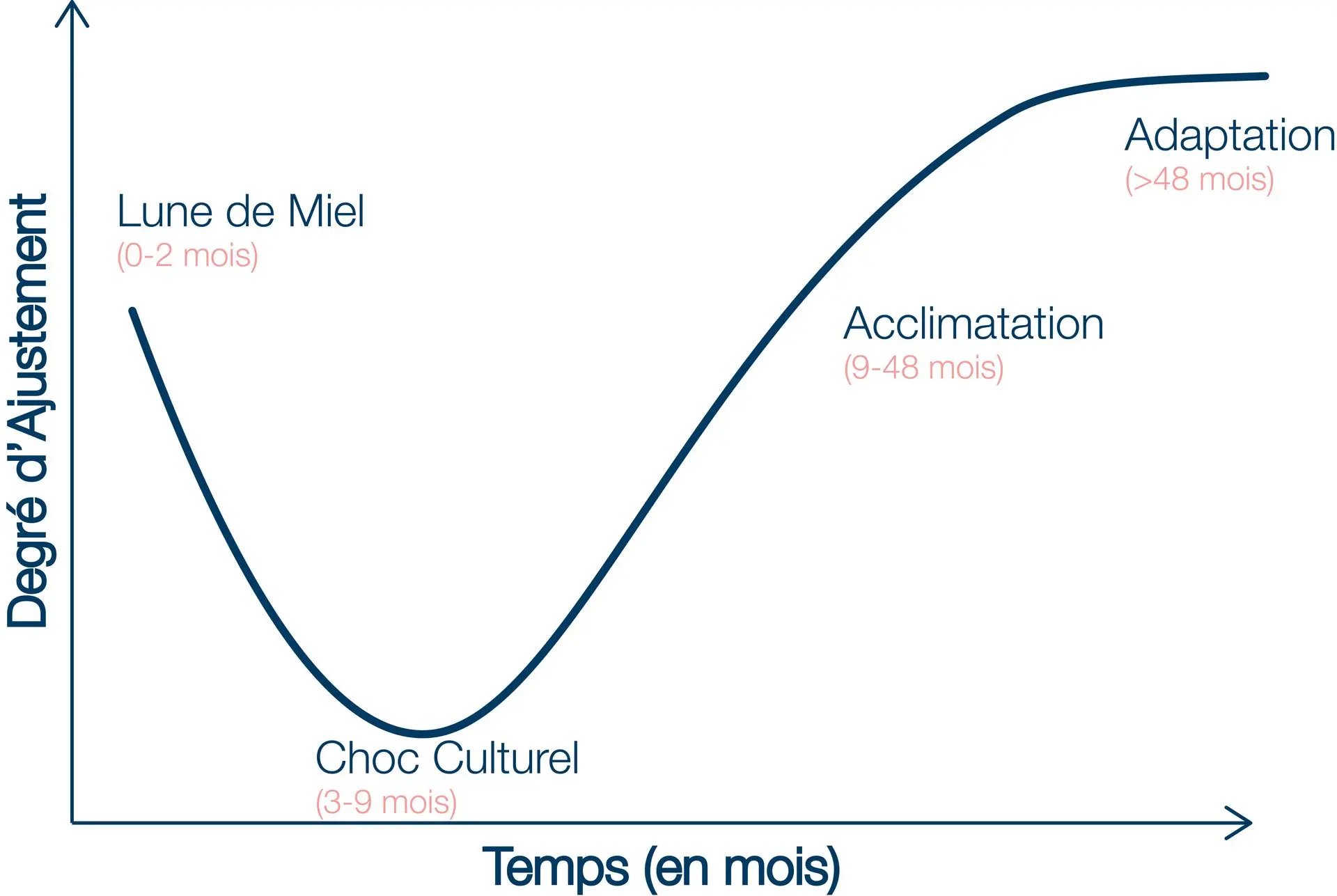
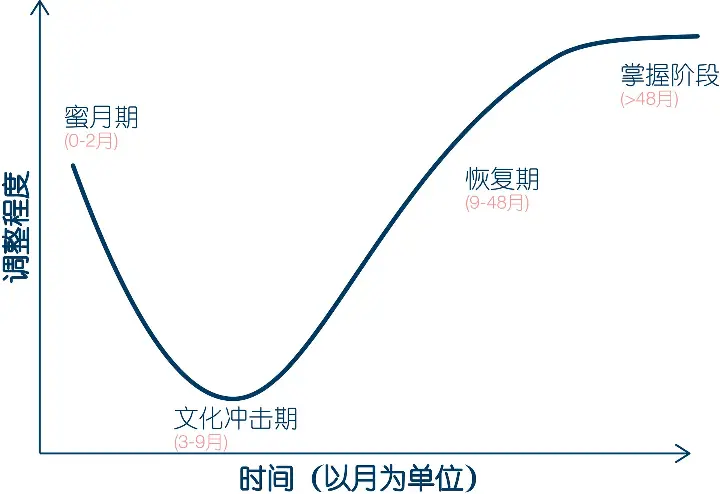
The Honeymoon Phase: Blinded by the Lights

You just landed in Shanghai, feeling like a kid in a candy store – if the candy store had skyscrapers and sold jianbing, that is.
The contrast between the Pudong skyline and the quiet life of your local xiaoqu mesmerizes you. You read somewhere that you should try the soup dumplings next to the Yu Garden and the hour-long queue to taste them doesn’t even both you: everything is new and exhilarating, and you can’t wait to cross all the items off the TripAdvisor “what to do in Shanghai” bucket list.

You just landed in Shanghai, feeling like a kid in a candy store – if the candy store had skyscrapers and sold jianbing, that is.
The contrast between the Pudong skyline and the quiet life of your local xiaoqu mesmerizes you. You read somewhere that you should try the soup dumplings next to the Yu Garden and the hour-long queue to taste them doesn’t even both you: everything is new and exhilarating, and you can’t wait to cross all the items off the TripAdvisor “what to do in Shanghai” bucket list.
Decription
This initial phase is marked by excitement and fascination with the new culture. Everything feels novel and interesting, and expatriates often experience a sense of adventure.
Typical Feelings
Enthusiasm, curiosity, and optimism.
Tips for Navigating this Stage
- Embrace the excitement and make the most of it by exploring new surroundings;
- Engage with the local culture, not just the tourist spots;
- Pair excitement and curiosity with safety and respect for the local culture;
- Meet new people and build social connections – they'll be handy later!
The Culture Shock Phase: Lost in Translation

Reality starts to hit when you realize you can’t read the food menu or explain that you’re allergic to peanuts. You nearly missed your weekend getaway because you didn’t know you needed your passport to enter the train station.
Daily life in China isn’t as easy as back home, and you find yourself missing the ease and convenience of your old habits and certainties (wait, I have to work on a Sunday to make up for public holidays?).

Reality starts to hit when you realize you can’t read the food menu or explain that you’re allergic to peanuts. You nearly missed your weekend getaway because you didn’t know you needed your passport to enter the train station.
Daily life in China isn’t as easy as back home, and you find yourself missing the ease and convenience of your old habits and certainties (wait, I have to work on a Sunday to make up for public holidays?).
Decription
As novelty fades, the reality of daily life in a foreign culture sets in. Miscommunications, cultural misunderstandings, and the absence of familiar support systems can lead to feelings of frustration and isolation. This phase tests your adaptability and resilience.
Typical Feelings
Anxiety, frustration, confusion, and homesickness.
Tips for Navigating this Stage
- Recognize that culture shock is a normal and temporary part of the adaptation process;
- Seek comfort in familiar routines or hobbies from home;
- Be proactive in learning the language to enhance communication and reduce misunderstandings;
- Connect with other expatriates who have experienced similar challenges.
The Recovery Period: Finding Your Rhythm
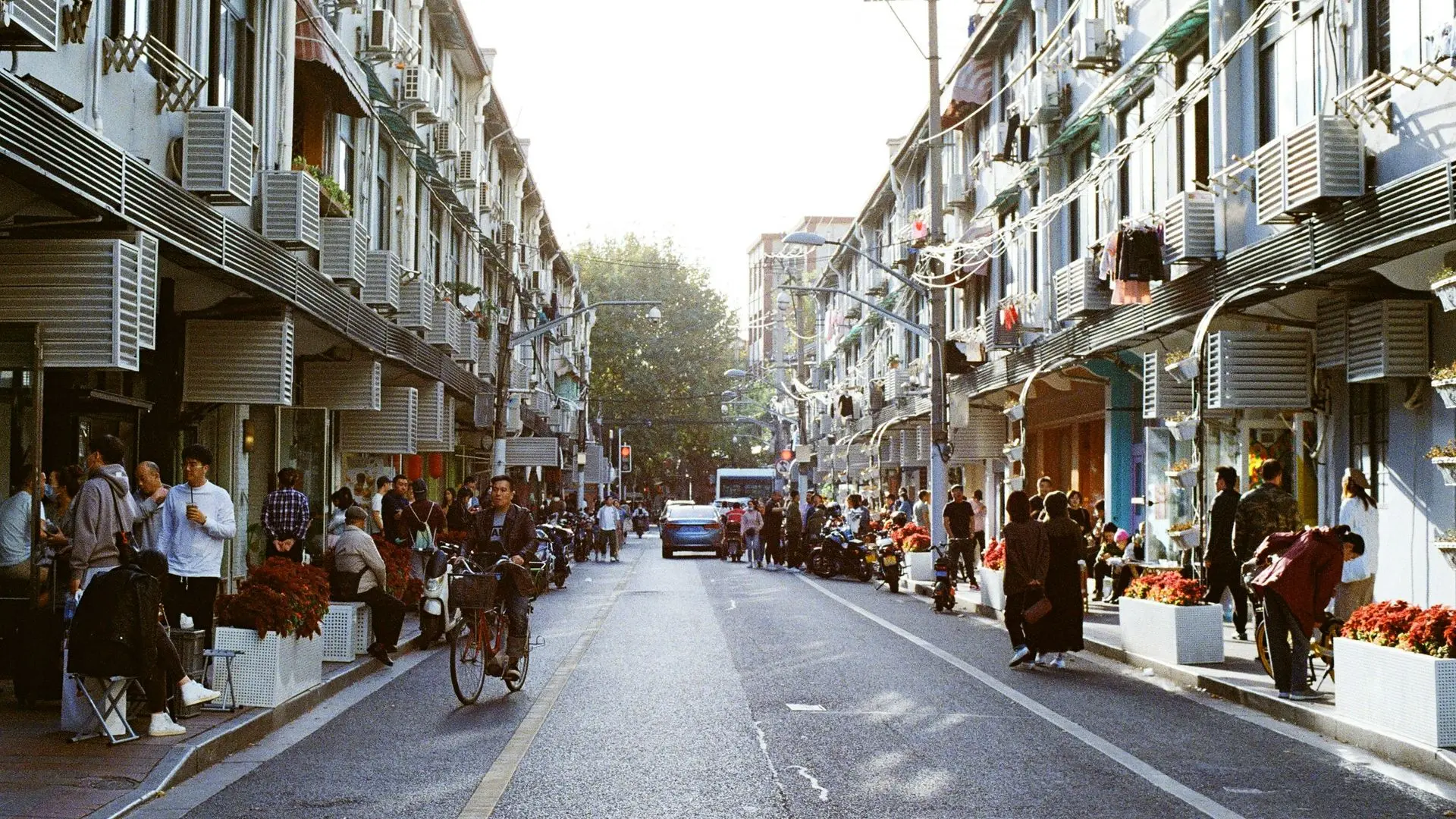
Slowly but surely, you start to find your rhythm. Your friend helped you set up Taobao, Didi, and Eleme, making you feel like a functional human being again (answering the phone calls is still a challenge, but you’re getting there!). You've even made some friends who don’t judge your terrible attempts at Mandarin and have introduced you to the wonders of late-night karaoke sessions.
Living abroad isn't so hard after all!

Slowly but surely, you start to find your rhythm. Your friend helped you set up Taobao, Didi, and Eleme, making you feel like a functional human being again (answering the phone calls is still a challenge, but you’re getting there!). You've even made some friends who don’t judge your terrible attempts at Mandarin and have introduced you to the wonders of late-night karaoke sessions.
Living abroad isn't so hard after all!
Decription
With time and effort, you begin to understand and navigate the new culture more effectively and have learned some of the local ways or pro tips from friends that make your daily routines more manageable and cultural nuances more sensible. This phase is marked by a growing sense of competence and confidence in your ability to live and thrive in your new environment.
Typical Feelings
Increased confidence, adaptability, and a growing sense of belonging.
Tips for Navigating this Stage
- Continue to deepen your understanding of the local culture through language classes, exploring, and local media.
- Develop a balanced routine that incorporates elements of your home culture and new culture.
- Focus on building meaningful relationships with both locals and other expatriates.
The Mastery Phase: At Home Abroad
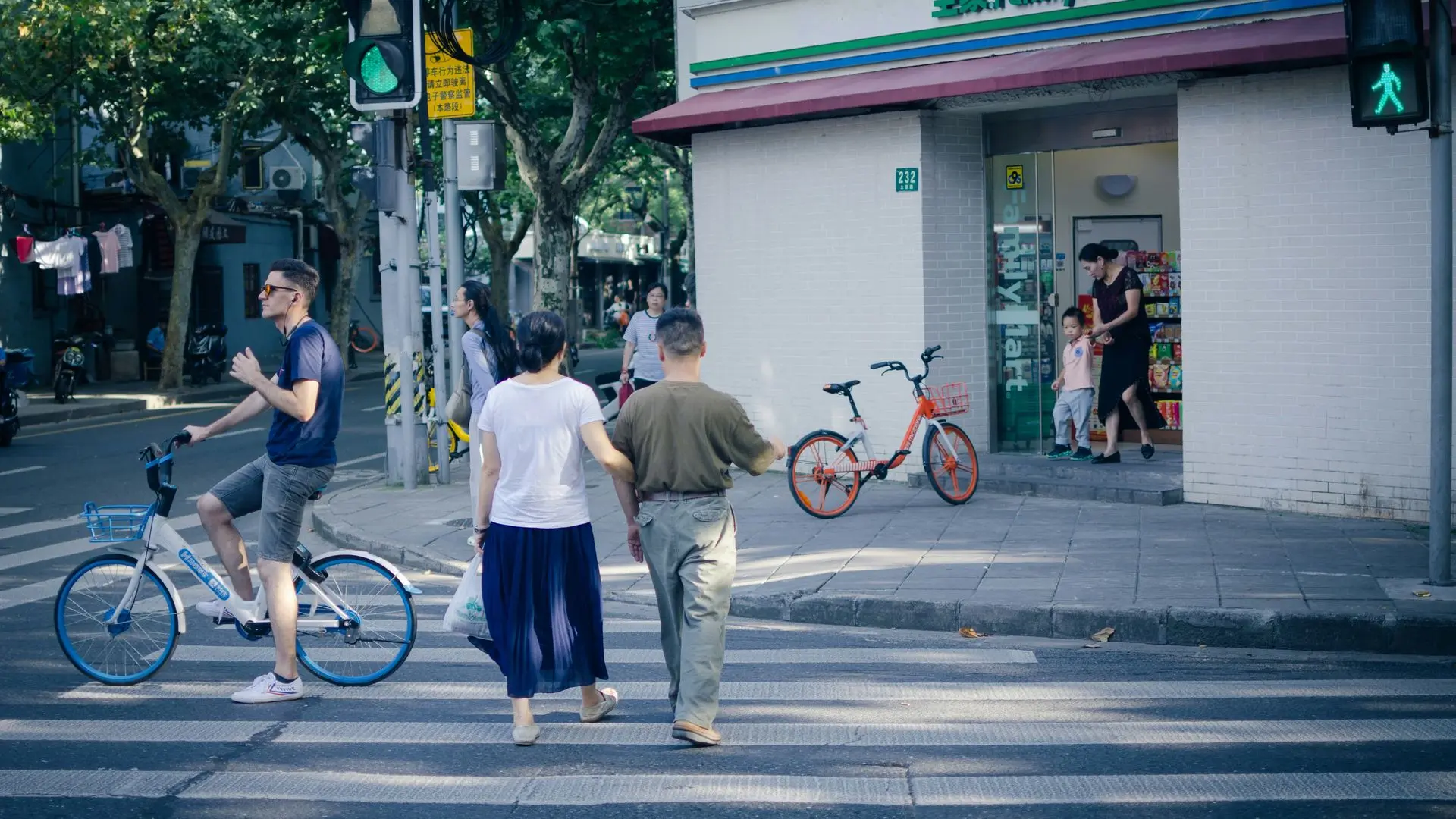
The city has truly become your home. You know all the best addresses, have become a top contributor on Dianping, and are a master at discovering new hidden spots on Xiaohongshu. You have a favorite shared-bike brand and ride along the Waimais without maps as a true master of the unspoken rules of rush hour traffic. You even astonished your neighbors by joining the conversation in Shanghainese.
The city’s rhythm feels like second nature, and you’ve learned to love and navigate its quirks.

The city has truly become your home. You know all the best addresses, have become a top contributor on Dianping, and are a master at discovering new hidden spots on Xiaohongshu. You have a favorite shared-bike brand and ride along the Waimais without maps as a true master of the unspoken rules of rush hour traffic. You even astonished your neighbors by joining the conversation in Shanghainese.
The city’s rhythm feels like second nature, and you’ve learned to love and navigate its quirks.
Decription
In this final phase, the new culture feels like home. You have developed a sense of biculturalism, where you can comfortably switch between cultural contexts. Your identity now incorporates elements of both your home and host culture, allowing you to navigate cultural differences with ease and confidence.
Typical Feelings
Satisfaction, integration, and biculturalism.
Tips for Navigating this Stage
- Maintain an open mind and continue to learn and grow from your experiences – the journey is never over!
- Share your journey and insights with newcomers, you were once in their shoes and a little bit of insight can go a long way!
- Continue stepping out of your comfort zone.
Practical Tips for NavigatingCultural Adaptation
Stay Informed
Thoroughly research your new country’s culture, traditions, and social norms before you move. Knowledge is power and can ease the transition.
Stay Connected
Balance maintaining connections with friends and family back home while building a supportive network in your host country.
Be Patient
Adaptation is a gradual process. Allow yourself the time and space to experience and learn from each phase of the U-Curve.
Seek Support
If you find the adaptation process particularly challenging, don't hesitate to seek help from local associations and professional support. Counseling services specifically for expatriates are available in many countries and can provide valuable assistance.
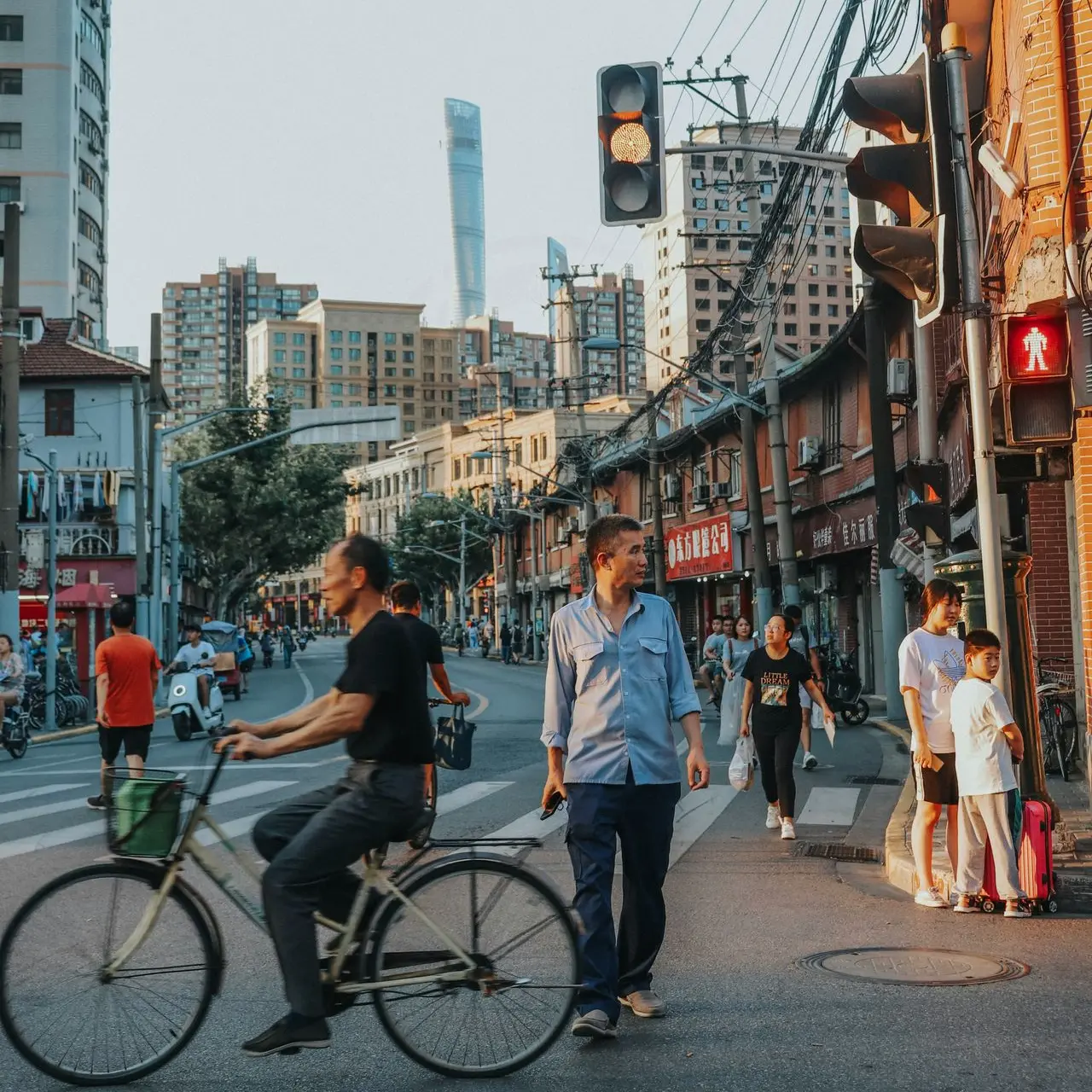

As you embark on the adventure of living abroad, whether for study, work, or personal growth, each stage will bring its own set of excitements and challenges. At ASI Movers, we understand that moving abroad is not just about changing your location; it’s about embracing a new way of life.
Our comprehensive international moving services are designed to support you every step of the way. ASI Movers takes immense pride in being your trusted partner throughout your relocation journey. With over 15 years of expertise, we understand that moving is not just a logistical task but a significant life event. From domesticto international relocations, our expert teams are dedicated to providing comprehensive services tailored to your needs.
Whether it's packing, transportation, or settling into your new home, we handle all the details, ensuring a smooth and stress-free transition.
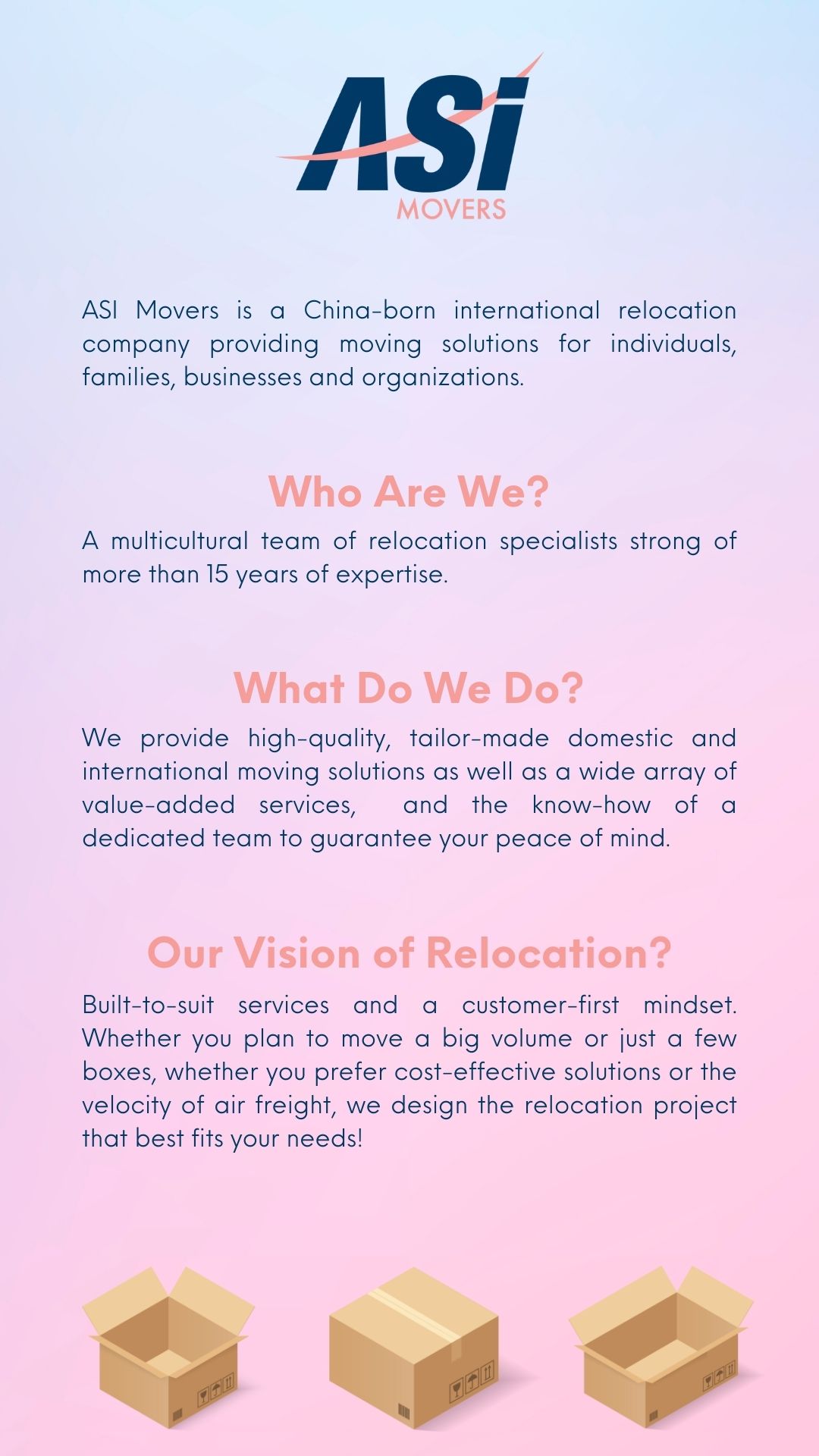
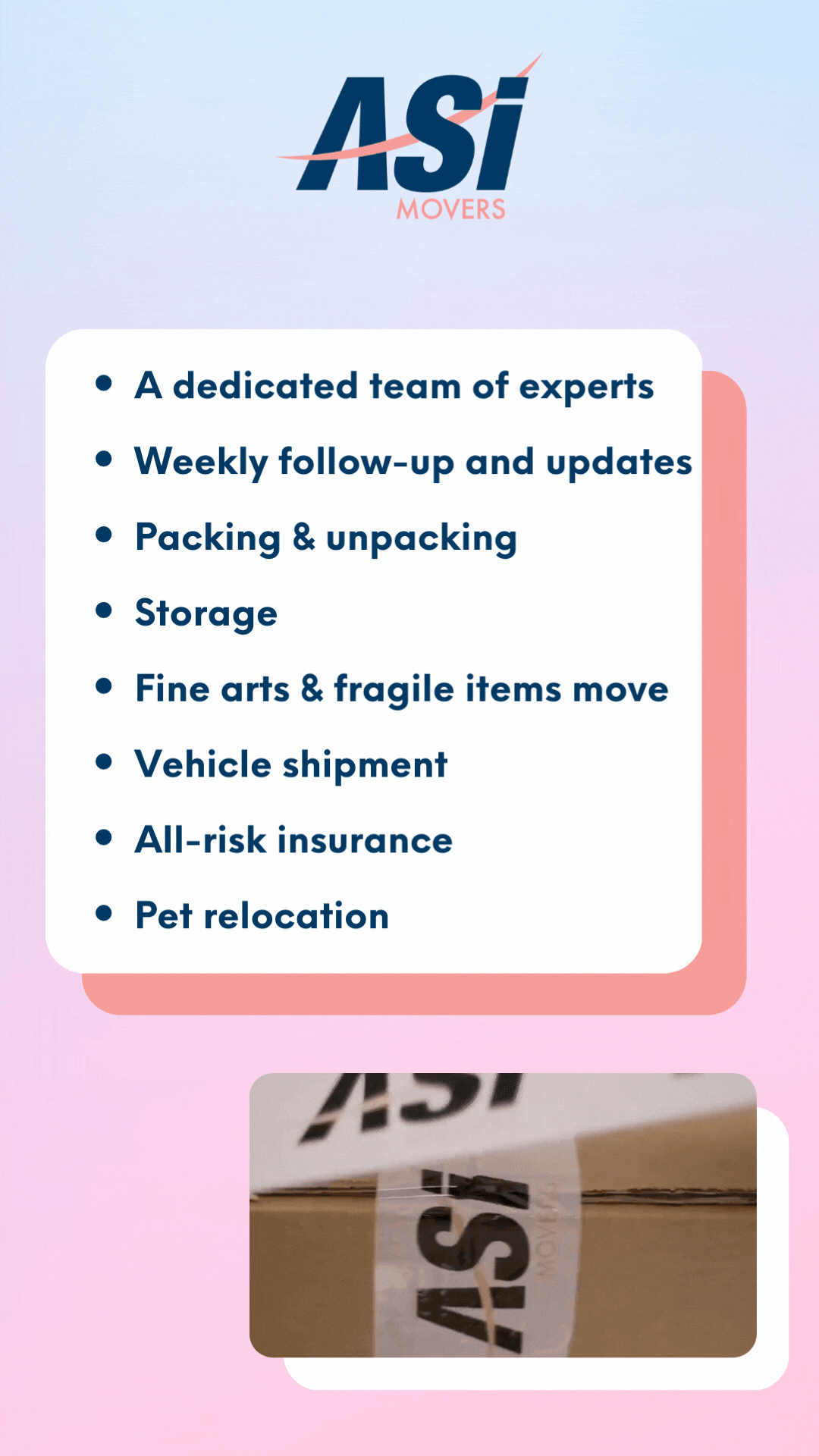
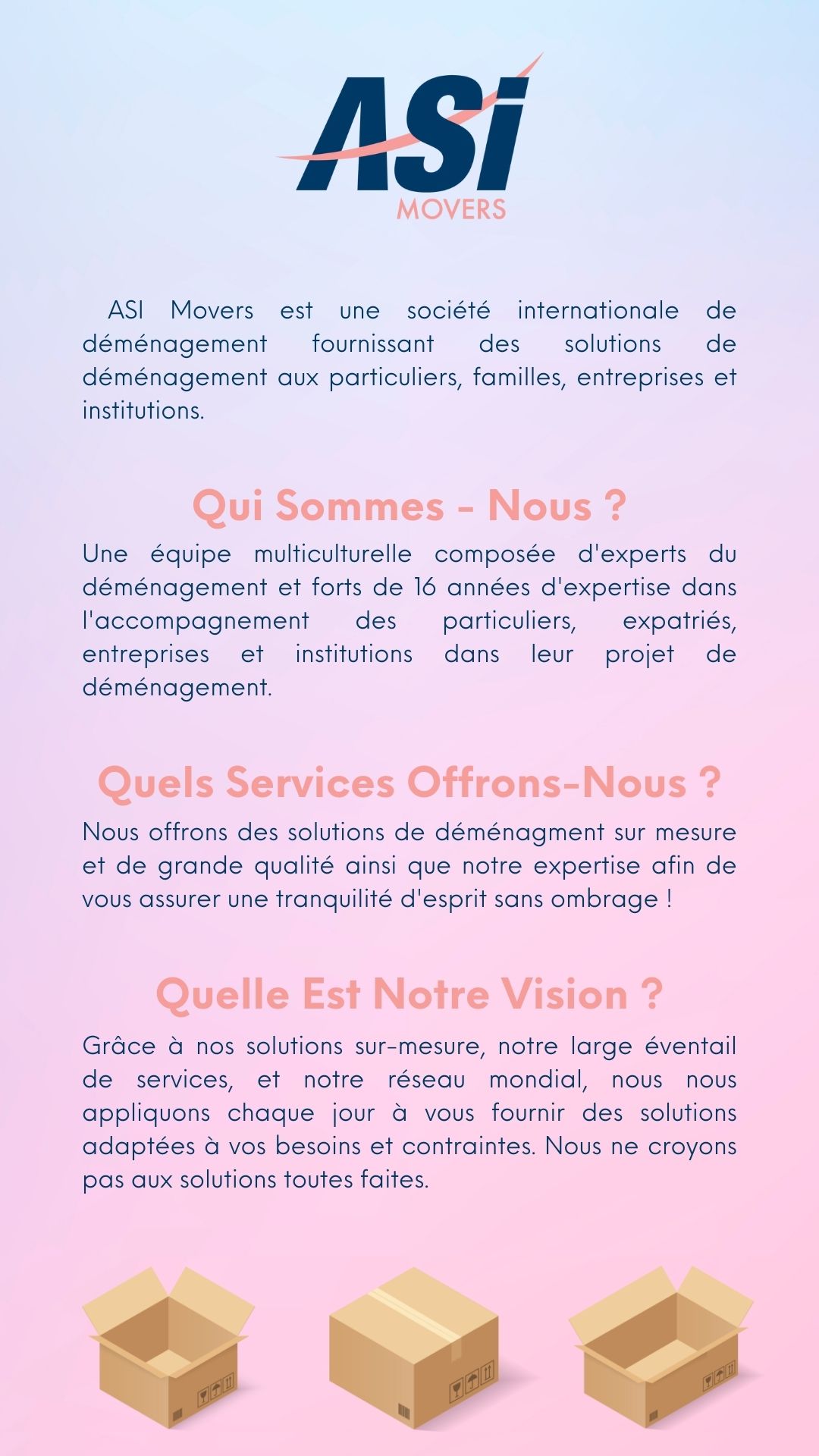
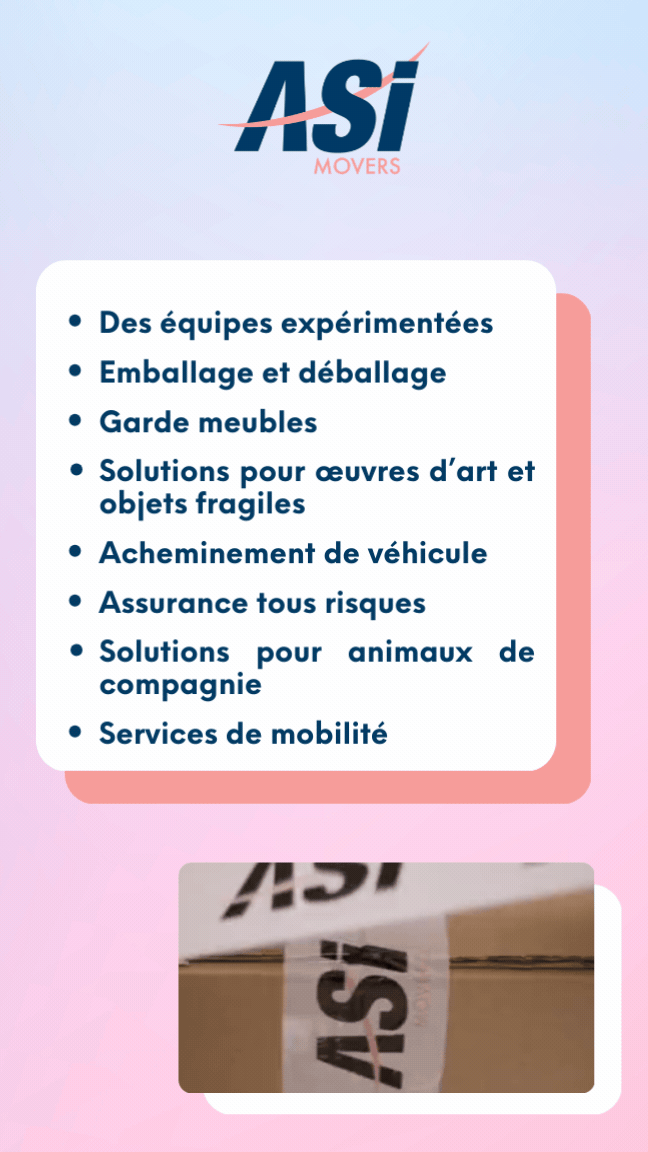
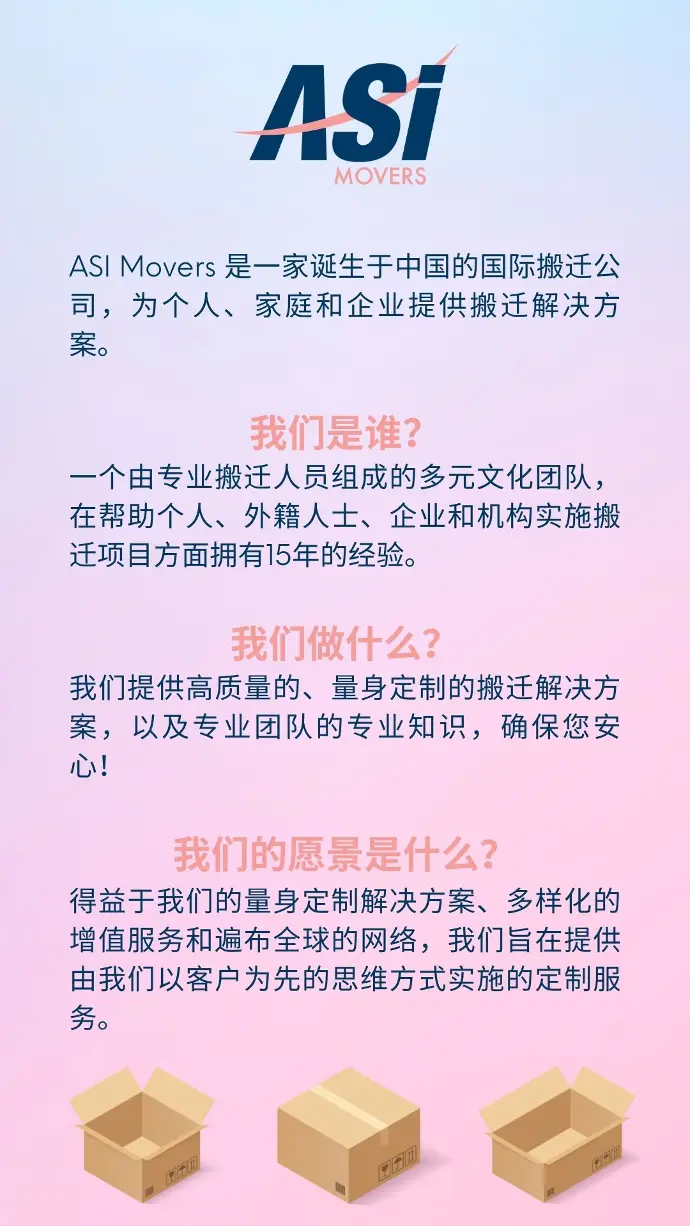
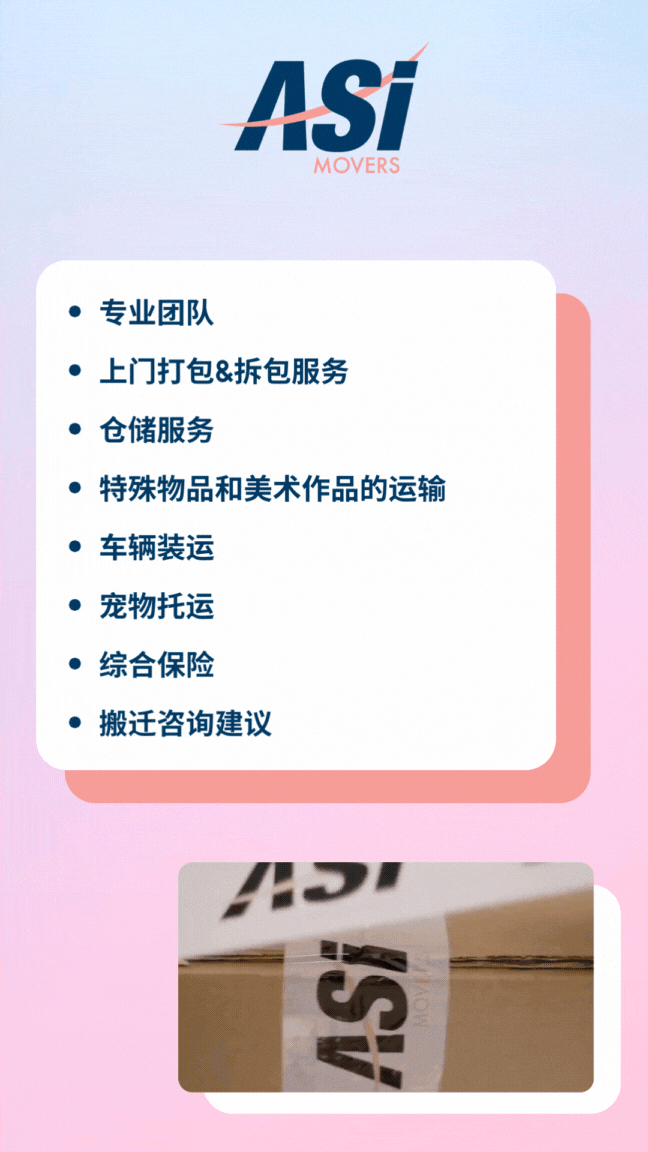

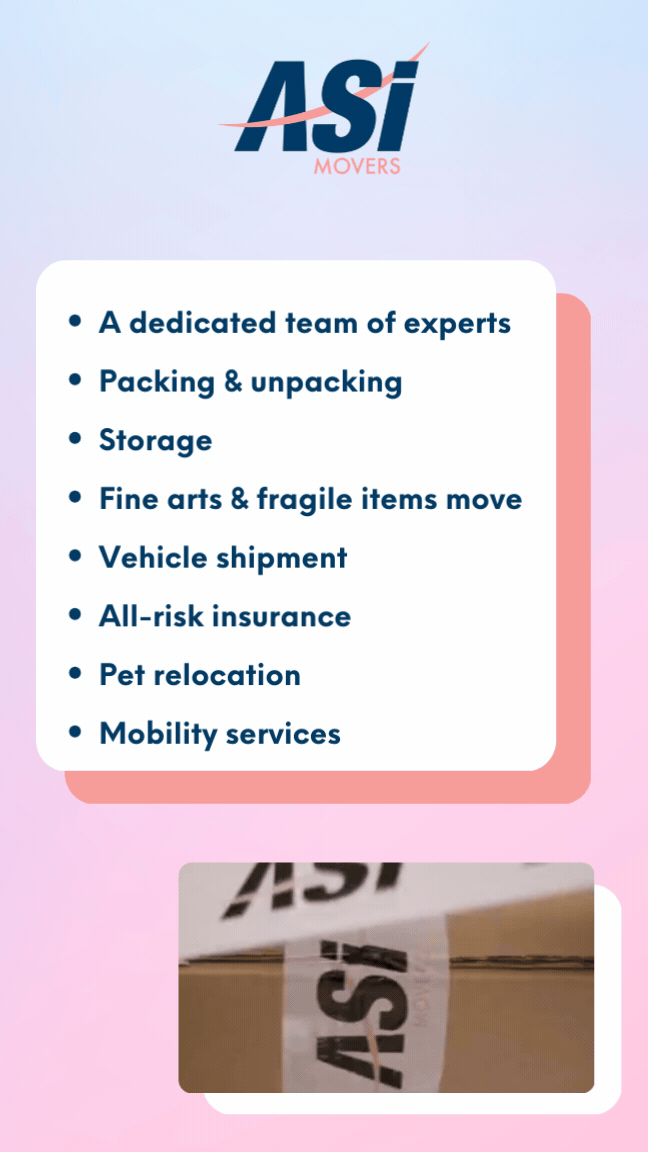




Photo credits:
- Edward Eyer on Pexels
- Li Lin on Unsplash
- Ulrich & Mareli Aspeling on Unsplash
- Levi Lei on Unsplash
- Victoria Laroche Creux on Unsplash
